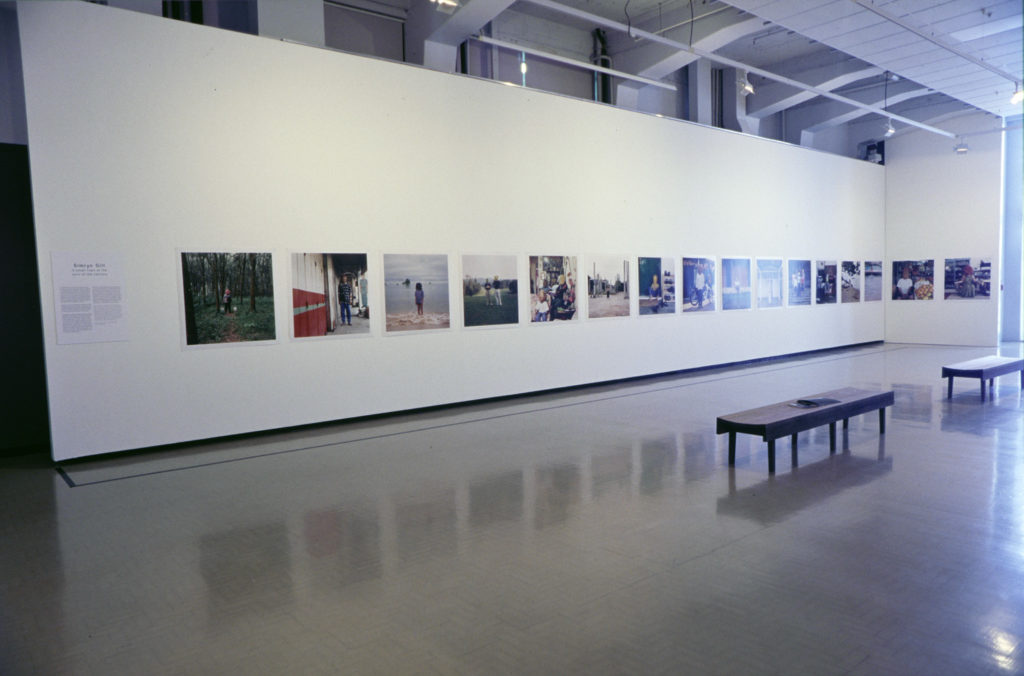OTHER VENUES Perth Institute of Contemporary Arts, 26 January–4 March 2001; Roslyn Oxley9 Gallery, Sydney, 29 March–21 April 2001; Australian Centre for Contemporary Art, Melbourne, 27 April–3 June 2001
Simyrn Gill was born in Singapore, and is based in Sydney and Malaysia. Her work explores themes of memory and narrative, of geography and nationhood, and of colonial expansion in Southeast Asia. She often incorporates everyday found objects and organic materials into her works. This is her first show in New Zealand.
For A Small Town at the Turn of the Century, Gill revisits her hometown, Port Dickson in Malaysia, to photograph the locals. They are documented in their living room or garden; at the beach or on the roadside; at their neighbourhood swimming pool, playground, or golf course; or in front of their shop. But there’s a twist.
The sitters wear sculptural head coverings the artist made from tropical fruits, masking their faces. Gill offers an absurd, surreal spin on traditional portraiture. A shopkeeper’s jackfruit headdress blends into the surrounding fruit on sale. A fisherman stands ankle deep on the beach as he gathers his net, but his head is replaced by carambola fruit.
Karim Raslan writes, ‘whilst you can take the girl out of the kampung [village], you can’t take the kampung out of the girl. Because of this “rootedness” her photographs speak to us directly … This is the landscape of our childhood.’
Gill has often used horticulture as a metaphor for the human condition. While she uses local fruit like durian, coconut, rambutan, or mangosteen, Gill’s photos ask us to question essentialist notions of identity. She plays notions of indigeneity and national identities off against the adaptability of vegetation, that doesn’t respect national borders. Gill writes: ‘Only later have I realised how ridiculously apt the coconut is to my dreaming: its seed is spread by water, and will grow where it is beached; it moves by its own rules, and certainly not by those of any border and immigration or customs …’























